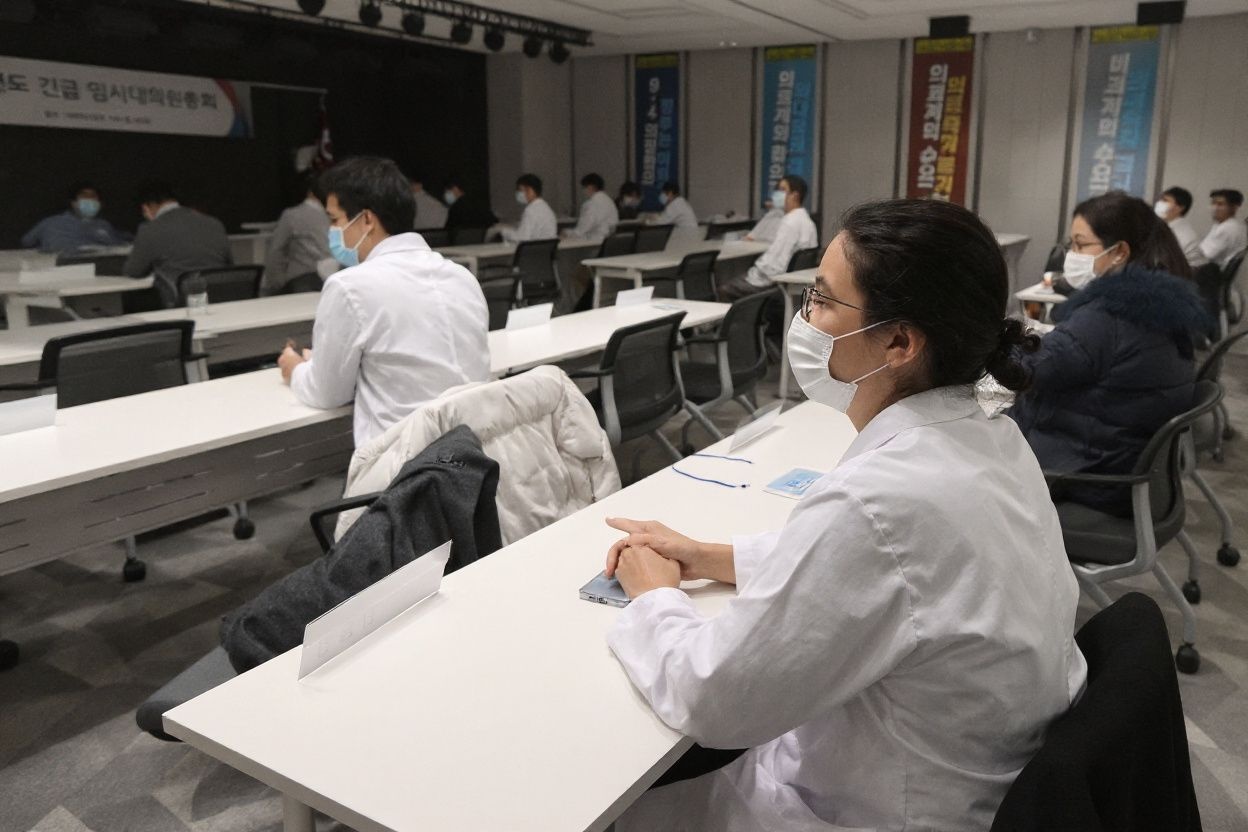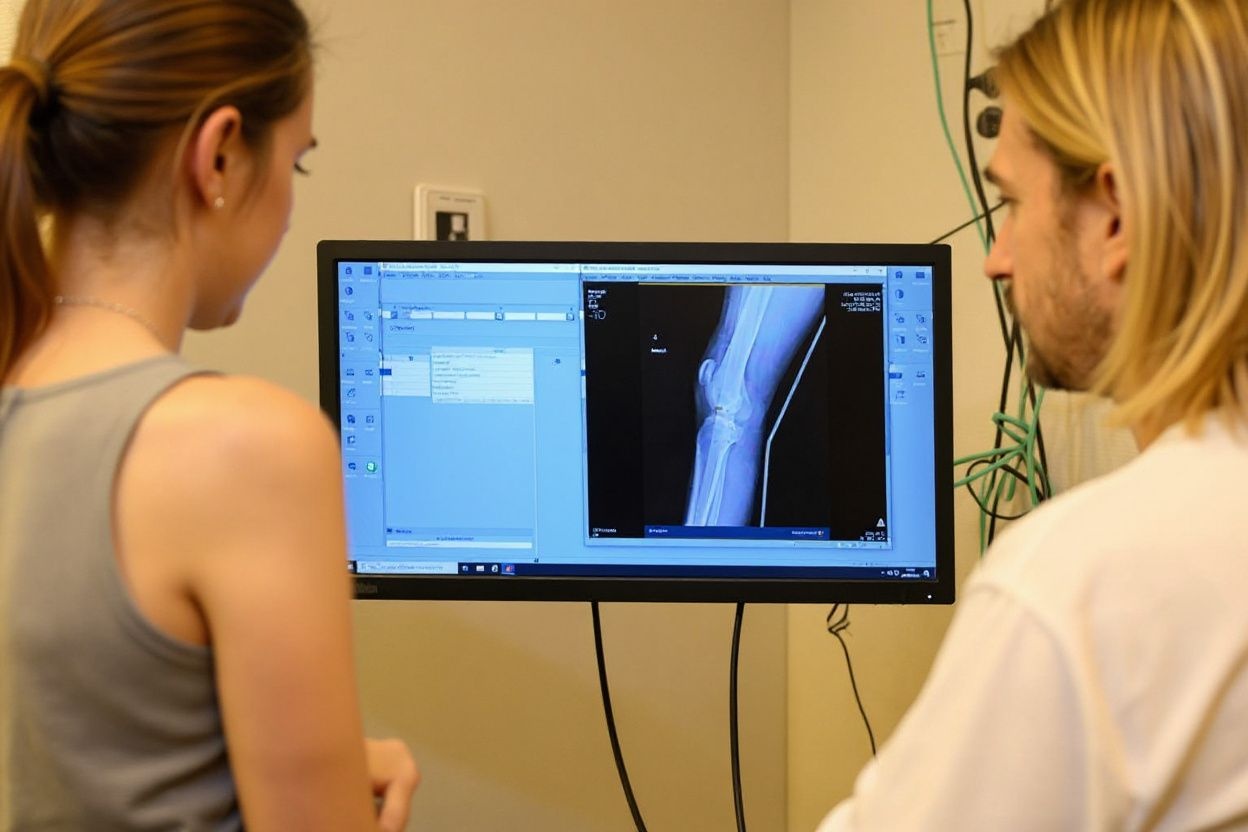
The road to becoming a medical professional is long and difficult.
Undergraduate degrees last around five years, followed by another four to five years of training and clinical rotations in medical school. Only after completing medical school can students move on to the residency phase for the next few years – this is where specialisation truly begins.
General medicine, like family practice, internal medicine, and paediatrics, usually requires an average of three years. Psychiatry, pathology, and general surgery can extend to five years, and those pursuing neurological surgery will be in training for six or more years.
It’s safe to say that most doctors and healthcare workers only become accomplished, licensed professionals in the middle years of their thirties to forties.
But not many make it through the gruelling process. This brings up another problem: a worldwide shortage of healthcare professionals and potential solutions such as the often controversial accelerated medical degrees.
 Healthcare professionals suffer from burnout constantly, which is one of the biggest unappealing factors in the profession.
Healthcare professionals suffer from burnout constantly, which is one of the biggest unappealing factors in the profession.
A growing urgency for healthcare professionals
This is the global healthcare industry in a snapshot:
- The World Health Organisation (WHO) projects demand for healthcare workers to grow 17% by 2025 due to population growth and ageing.
- A third of physicians and healthcare professionals today are over 55 years old, and less than half of primary caretakers and doctors are available after-hours.
- WHO estimates a global shortage of 4.3 million physicians, nurses, and other health professionals.
- The UK’s National Health Service (NHS) reveals that people in the most deprived communities are far more likely to have multiple emergency admissions to hospital in the last year of their lives. This is possibly due to those in poorer communities being more likely to die of treatable conditions or simply having harder access to general practitioners.
The shortage is increasingly apparent in developing nations due to the limited number and capacity of medical schools, coupled with the fact that many aspiring healthcare professionals migrate to other countries in pursuit of better pay and benefits.
With the world facing a shortage of medical professionals, some universities have begun offering accelerated medical degrees in the hopes of increasing the supply of doctors.
NHS England is the latest to offer a four-year undergraduate medical degree instead of the usual five, along with other initiatives such as expanding medical student numbers and a “medical apprenticeship” pilot.
Dubbed the NHS Long Term Workforce Plan, NHS calls it “a once-in-a-generation opportunity to put staffing on a sustainable footing and improve patient care.”
On top of reducing degree lengths, NHS plans to double its medical school training places to 15,000, increase the number of general practitioner training places by 50% to 6,000, and double adult nurse and midwife training to 24,000 by 2031.
Ultimately, NHS believes that the first step to achieving its goals is an accelerated medical degree – one that students can complete in only four years and begin work up to six months earlier.
While an early finish may sound like a good idea to most people, some professionals have raised concerns over the decision to offer an accelerated medical degree.
 Why go through a decade of medical school and training when there are options for accelerated medical degrees?
Why go through a decade of medical school and training when there are options for accelerated medical degrees?
Are accelerated medical degrees a good idea?
The Royal College of Physicians of Edinburgh released a statement claiming that the NHS had failed to involve them and other Medical Royal Colleges in its decision to implement four-year undergraduate medical degrees.
“The RCP believes that the pressures of trying to achieve the same number of hours of a five-year course in four years are counterproductive, with negative impacts on knowledge and skill acquisition and retention, and mental health and wellbeing,” states the letter. “It will also inhibit the NHS’s ability to widen access if prospective medical school students, motivated by reduced debt, are put under additional pressure to achieve.”
Now, NHS is under pressure to release details on how medical students will fit five years’ worth of curriculum into four without compromising on national standards.
Other concerns include less time off for students, reduced time for exam preparation, and the possibility of having to do courses through summer break.
But NHS is only one of many recent institutes offering accelerated medical degrees.
Other institutes, such as NYU Grossman School of Medicine, Medical College of Wisconsin, Calgary Medical School, Columbia University Medical School, and others, offer similar accelerated medical degrees, where students either benefit from a reduced course length or have additional opportunities to start training and residency early.
At NYU, those in the accelerated programme have even performed better than those in the four-year programme in their Step 3 licensing exam.
Better yet, NYU Grossman School of Medicine’s Dr. Arthur Caplan, the current head of the Drs. William F. and Virginia Connolly Mitty Professor of Bioethics and founding head of the Division of Medical Ethics at Department of Population Health,
“Although some students in the accelerated program didn’t perform quite as well on the Step 1/Step 2 licensing exam, what we have seen is that by the time they got to Step 3, the accelerated students actually did better,” says NYU Grossman School of Medicine’s Dr. Arthur Caplan in a commentary done on Medscape.
Dr. Caplan, who is the current head of the Drs. William F. and Virginia Connolly Mitty Professor of Bioethics and founding head of the Division of Medical Ethics at the Department of Population Health, believes that this indicates that an accelerated medical school curriculum can be instituted.
“It’s efficient, it’s cost-effective, it prepares students sufficiently for residency, and it doesn’t cause any compromise in the quality of the education and preparation that the students get,” he said. “The results look great. There was no damage to anybody who did the three-year program, so it’s really something to think about.”
Why you should consider an accelerated medical degree
While many aspiring healthcare professionals yearn for the prestige and money that comes with the position, not everyone is a fan of the arduous journey it takes to get there. So perhaps an accelerated medical degree could be the answer you’re looking for.
Do note that it’ll be different earning a medical degree in the US compared to countries such as the UK and Australia.
This is because most medical programmes in the US are for postgraduate students, which makes earning your degree even longer. Meanwhile, medical programmes in the UK and elsewhere in the world take a shorter period as students begin their courses as undergraduates.
Now, if you need extra convincing about the benefits of accelerated medical degrees, check out some of the reasons below:
A shorter timeframe
Obviously, the main advantage of accelerated medical degrees is that they are faster to complete than traditional ones, as they typically focus on a particular area of medicine or practice.
But in return, expect to work hard – these programmes are intensive and designed to help students make the most of their time. This may mean having summer courses, more daily classes, and longer training hours in general.
Saves money
The cost of a medical degree can be pretty steep.
An accelerated medical degree helps students save a year or two on tuition fees – a three-year programme could reduce a student’s debt by tens of thousands. At the same time, some of these programmes also include residency placements, which means students save on applications, travel, and potentially, accommodation.
Programmes are innovative
Students pursuing accelerated medical degrees will benefit from the latest research and cutting-edge technology. After all, such as the nature of an accelerated medical degree.
Matthew Hunsaker, MD, dean of the Medical College of Wisconsin’s Green Bay campus, believes that shorter programmes will drive innovation. “We are working on teaching more efficiently, so we’re testing lots of ideas on sequencing, format, and early clinical experiences that four-year programmes may be more hesitant to try but are essential for us,” he says.
Smooth transition to workforce
An accelerated medical degree will help you enter the workforce sooner. Some programmes, like a medical degree from NYU Grossman School of Medicine, include residency acceptances, called “early conditional acceptance.”
It’s a much less stressful process as you’ll know in advance where your residency will be, and you’ll already be working towards it without going through applications and interviews.
Interested? Begin by checking out our picks for accelerated medical degrees.
8 universities offering accelerated medical degrees
 Accelerated medical degrees have plenty of on-site training as compared to traditional degrees.
Accelerated medical degrees have plenty of on-site training as compared to traditional degrees.
NYU Langone
We’ve mentioned NYU Langone’s Grossman School of Medicine a couple of times, and for good reason.
The school offers the largest number of accelerated medical degrees, all providing direct access to its 21 residency programmes. Throughout the programme, students will work with potential mentors through rotations and electives in their designated speciality, making for a smooth transition from medical school to residency training.
Newcastle University
Newcastle University is home to the Medicine and Surgery MB BS, an accelerated medical degree that combines the first and second year of a medical degree into a 45-week programme.
The programme focuses largely on case-led teaching, and students will frequently visit hospitals and other general practices around the region to gain learning experience.
View this post on Instagram
Pennsylvania State University
The PennState College of Medicine offers a 3+3 programme for those interested in going into family medicine.
The Penn State Family Medicine Accelerated Pathway is a pathway where students complete medical school in only three years, and then move on a three year Family and Community Medicine Residency at Penn State Health Milton S. Hershey Medical Center or Family and Community Medicine Residency at Mount Nittany Medical Center in State College.
Mercer University
Mercer University’s Primary Care Accelerated Track (ACT) Programme was one of the first of its kind in the US. Designed to address Georgia’s critical shortage of primary care physicians, the three-year programme targets students interested in family medicine, general internal medicine or paediatrics.
The programme offers scholarships that cover tuition for the second and third year of medical school, with the condition that the student must reside and practice full-time in an approved medically underserved rural Georgia county for three continuous years.
View this post on Instagram
Deakin University
The School of Psychology at Deakin offers the Graduate Diploma of Psychological Science, a one-year bridging course, for those who want a fast track to becoming a psychologist. The programme consists of core psychology units necessary as a foundation before advanced studies and shaves off one to two years. It’s an especially useful programme, as it allows those who already have a degree from another discipline to explore a possible career change.
Interested in learning more? The Consortium of Accelerated Medical Pathway Programmes (CAMPP) may be a great place to start looking. It is an organisation of medical schools in the US and Canada with three-year or other accelerated medical degrees.
University of Miami
Not only is the Miller School of Medicine the top place to be for dual-degree medical graduates, the school’s three-year accelerated pathway to residency programme also allows those who complete their studies to qualify for training in one of the University of Miami/Jackson Health Systems’ residency programmes.
Those who don’t secure a residency position during your third year won’t have to worry too — you will transition into the school’s four-year medical scientist training programme and will enter the main residency match process to secure your position.
Upstate Medical University
The Norton College of Medicine‘s accelerated medical degree allows students to finish the programme in three years and be on a directed pathway to a residency at SUNY Upstate Medical University or UHS in Binghamton.
Students in the Syracuse campus get to continue in the following residency programmes at SUNY Upstate, which include emergency medicine, family medicine, general surgery, internal medicine, neurology, paediatrics, psychiatry, radiation oncology, and urology.
Meanwhile, those at the Binghamton campus will complete their residency at UHS in Binghamton in either the fields of family medicine, internal medicine, or psychiatry.
Wayne State University
The only medical school in Michigan that offers a three-year M.D. programme, Wayne State University’s School of Medicine’s accelerated programme particularly benefits those with previous healthcare experience and are ready to fast-track their medical career.
From the get-go, you’ll also be assigned a faculty mentor within your identified specialty upon beginning your lessons. You’ll work with a clinical preceptor as well who’ll be an integral part of your hands-on training in clinical skills.
Residencies here include family medicine, internal medicine, preventive medicine, anesthesiology, dermatology, and otolaryngology.
Disclaimer: This article was last updated on January 9, 2025.










